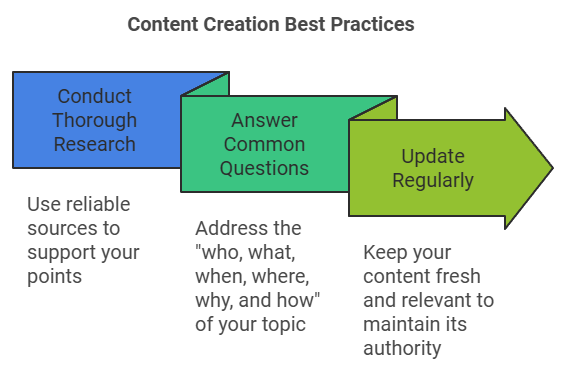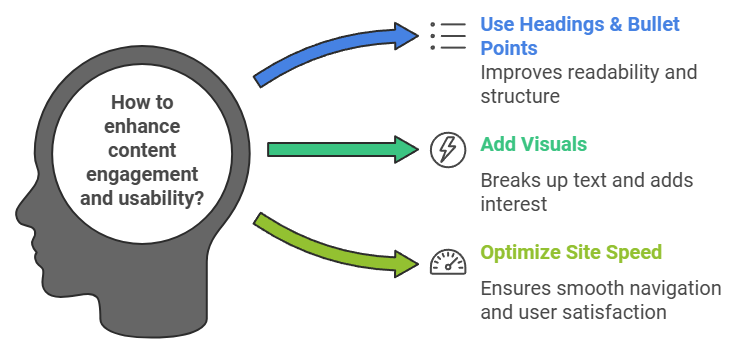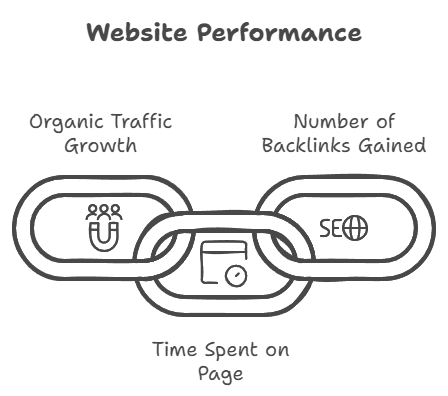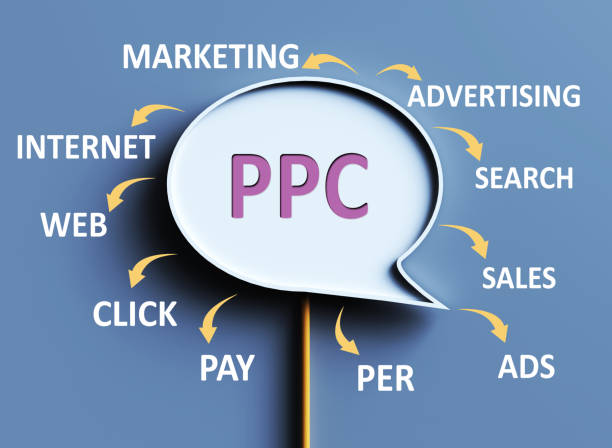Content marketing and SEO work together like a well-coordinated team. At its core, content marketing is about creating valuable, relevant, and consistent content that engages your audience. When done right, this effort also boosts your website’s search engine rankings, increasing visibility and attracting organic traffic.
But how does this process work? Let us break it down and show you how content marketing fuels SEO rankings, step by step.
What Is Content Marketing and Why Does It Matter?
Content marketing involves crafting and sharing meaningful content that addresses the needs or interests of your target audience. This can take the form of blog posts, videos, infographics, podcasts, or eBooks.
Unlike direct advertising, it focuses on providing value first, which builds trust and loyalty over time. When you consistently publish engaging content, search engines recognize your efforts, which leads to better SEO rankings.
The Link Between Content Marketing and SEO
Content marketing and SEO are inseparable. Without optimized content, there is little for search engines to crawl, index, and rank. Similarly, SEO techniques, like keyword research and meta optimization, help ensure your content reaches your target audience.
A robust content marketing strategy improves your online presence while directly influencing your search engine rankings.
How Quality Content Builds Authority
Search engines prioritize high-quality content that provides clear answers to users’ questions. When your website consistently publishes authoritative, in-depth articles, it signals trustworthiness to search engines.
Tips for Creating Authoritative Content:
-
Conduct Thorough Research: Use reliable sources to support your points.
-
Answer Common Questions: Address the “who, what, when, where, why, and how” of your topic.
-
Update Regularly: Keep your content fresh and relevant to maintain its authority.

Keywords: The Foundation of SEO Success
Using the right keywords is essential for making your content discoverable. Keywords reflect the terms people search for, helping search engines match your content with relevant queries.
How to Use Keywords Effectively:
-
Place Keywords Naturally: Avoid keyword stuffing; focus on readability.
-
Include in Key Areas: Use keywords in titles, headings, meta descriptions, and within the first 100 words.
-
Research Long-Tail Keywords: These are specific phrases that often drive more targeted traffic.
The Role of Blogging in Content Marketing and SEO
A blog is one of the most powerful tools in content marketing. Blogging provides a consistent way to share insights, engage your audience, and improve your site’s rankings.
Benefits of Blogging:
-
Boosts website traffic.
-
Encourages social sharing, which increases backlinks.
-
Offers fresh content for search engines to crawl.
Why Backlinks Are a Game Changer
Backlinks are external links pointing to your website. Search engines see them as votes of confidence in your content. When reputable websites link to your articles, it boosts your site’s credibility and rankings.
Ways to Earn Quality Backlinks:
-
Create shareable, original content.
-
Reach out to websites for guest posting opportunities.
-
Develop infographics that others want to link to.
How Content Marketing Enhances User Experience
User experience is at the heart of both content marketing and SEO. A well-structured, engaging piece of content keeps readers on your site longer.
Key Strategies for Improving User Experience:
-
Use headings and bullet points to improve readability.
-
Add images, videos, or graphics to break up text.
-
Optimize site speed to ensure smooth navigation.

The Power of Visual Content in SEO Rankings
Visual elements, such as images, videos, and infographics, captivate audiences and help explain complex ideas. Visuals not only improve engagement but also enhance your SEO.
Why Visuals Matter:
-
They attract more traffic through image searches.
-
Users are more likely to share visually appealing content.
-
Videos boost the time spent on your site, a key ranking factor.
Creating Evergreen Content for Lasting Results
Evergreen content remains relevant over time, driving traffic long after its publication date. This type of content provides long-term value, which is ideal for improving SEO rankings.
Examples of Evergreen Content:
-
How-to guides
-
FAQs
-
Resource lists
How Social Media Amplifies Content Marketing Efforts
Social media platforms help amplify your content by sharing it with a broader audience. Although not a direct ranking factor, social signals, such as likes and shares, increase visibility and traffic.
Best Practices for Social Sharing:
-
Tailor content for each platform.
-
Use attention-grabbing headlines.
-
Encourage sharing by adding social buttons to your content.
Tracking Metrics: Measuring the Success of Your Strategy
It is vital to track performance to understand what works. Tools like Google Analytics and Search Console provide insights into your traffic, bounce rates, and keyword rankings.
Important Metrics to Monitor:
-
Organic traffic growth
-
Time spent on page
-
Number of backlinks gained

Conclusion: Fueling SEO with Content Marketing
Content marketing plays a vital role in improving SEO rankings. By creating high-quality, keyword-rich content, you attract organic traffic, build authority, and strengthen your online presence. Consistency is key—focus on delivering valuable content that aligns with your audience’s needs, and you will see steady growth in your rankings.
FAQs
1. How often should I publish content to improve SEO?
Publishing high-quality content consistently, such as once a week, helps improve SEO rankings. The key is quality over quantity.
2. Can content marketing help small businesses?
Yes, content marketing is highly effective for small businesses, as it builds trust and increases visibility without requiring a massive budget.
3. What types of content work best for SEO?
Blog posts, videos, infographics, and how-to guides are excellent for SEO because they are engaging and shareable.
4. How long does it take to see results from content marketing?
Results vary, but most businesses start seeing noticeable improvements within 3-6 months of consistent effort.
5. Do I need professional writers for content marketing?
Hiring professionals ensures your content is high-quality and aligns with SEO best practices, but small businesses can also achieve success with in-house teams.







